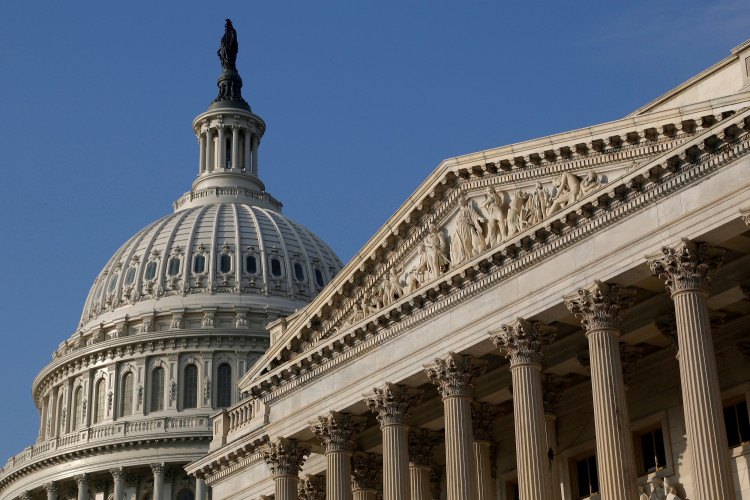Speculation is swirling in Washington D.C. the impeachment trial of President Donald Trump in the Republican-controlled Senate might not take place at all in January and might be called-off until after the November 2020 presidential election.
Media reports say Republican Party leaders are favorably contemplating what's being called the "nuclear option" where Republicans make a procedural motion to adjourn the start of the impeachment trial until Nov. 4, 2020, the date of the presidential election. That option will allow Americans to decide Trump's fate at the ballot box instead of the Senate where a trial might drag on for months and damage Trump's chances for reelection.
The impeachment trial will take place if Trump wins reelection. If Trump loses, the trial becomes moot. In either case, the GOP wins.
Experts point out the U.S. Constitution does not specify when an impeachment trial must take place. A simple majority of 51 votes is all that will be needed to pass such a motion. Republicans control 53 of the Senate's 100 seats and the passage of this option is assured if it comes to a vote.
Washington insiders say the nuclear option will effectively nullify the gamble by House majority leader Nancy Pelosi (D-CA) of preventing the transmittal of the articles of impeachment to the Senate in the hopes of securing concessions from Senate Republicans that will lead to a fair trial. Senate majority leader Mitch McConnell (R-KY) last week publicly said he won't be an impartial juror in the trial and will immediately move to acquit Trump.
"I'm not an impartial juror," said McConnell. "This is a political process. There is not anything judicial about it. Impeachment is a political decision . . . I'm not impartial about this at all."
Previous to this, McConnell admitted to working in close coordination with Trump and the White House on the impeachment trial.
"Everything I do during this, I will be coordinating with White House counsel," said McConnell to Fox News two weeks ago. He said wants to ensure there will be "no difference between the president's position and our position as to how to handle this."
McConnell now wants a short trial without witnesses. He rejected a request by Senate minority leader Chuck Schumer (D-NY) to call several Trump administration officials to testify during the trial that will be presided over by Supreme Court Chief Justice John Roberts.
Apart from the nuclear option, Republicans can entertain a motion by Trump's lawyers to dismiss both articles of impeachment before the start of a trial. Trump's lawyers will allege the failure of House Democrats to meet the constitutional threshold for stating a cause of action. This option will require a simple majority of 51 votes to pass.
The GOP can also look into beginnig a trial and ending it whenever the Senate majority deems it's heard enough and call for a vote. This vote will be called when the Senate majority is confident a supermajority of 67 senators, or two-thirds of the Senate, won't vote to convince Trump.






